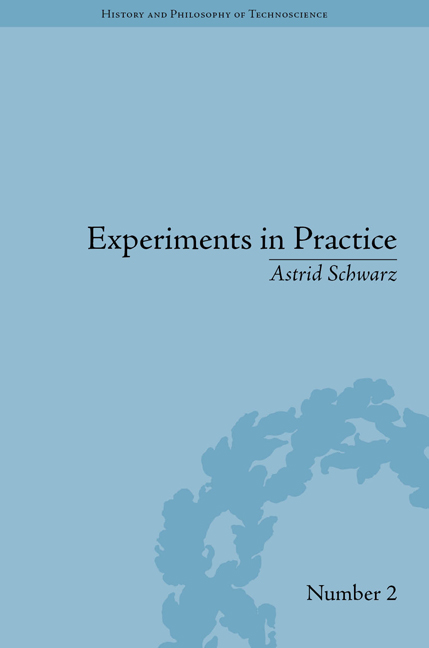Book contents
- Frontmatter
- CONTENTS
- List of Figures
- Introduction: Towards an Experimental Mode in Science, Society and Philosophy
- Part I Questioning the Scientific Method
- Part II Different Modes of Experimentation
- 4 The Experiment in Recent Philosophy of Science
- 5 Experimentation in Lab and Field
- 6 Exploring the Field Ideal
- Part III Tirelessly Tinkering with Unruly Conditions
- Part IV Practising Experiments in a World of Environmental Concerns
- Conclusion: Experiments in Practice – the Work of Experiments
- Notes
- Works Cited
- Index
5 - Experimentation in Lab and Field
from Part II - Different Modes of Experimentation
- Frontmatter
- CONTENTS
- List of Figures
- Introduction: Towards an Experimental Mode in Science, Society and Philosophy
- Part I Questioning the Scientific Method
- Part II Different Modes of Experimentation
- 4 The Experiment in Recent Philosophy of Science
- 5 Experimentation in Lab and Field
- 6 Exploring the Field Ideal
- Part III Tirelessly Tinkering with Unruly Conditions
- Part IV Practising Experiments in a World of Environmental Concerns
- Conclusion: Experiments in Practice – the Work of Experiments
- Notes
- Works Cited
- Index
Summary
So far discussion of the ‘new experimentalism’ has revealed that questioning the role of the scientific experiment amounts to questioning some of the most basic tenets of twentieth-century philosophy of science. These include the distinction between a context of discovery and a context of justification, the distinction between discovering and constructing objects and, along with that, the opposition between the artificial and the natural and, finally, the separation between two dominant modes of practice and knowledge production, namely, science and technology. All this has been discussed with reference to experimentation in the lab, and here again it is the physics laboratory that has most captured the attention of philosophers of science. This is how the lab ideal of experimentation took shape and became consolidated.
For some time now, the exclusive focus on physics has come under pressure: philosophical problems concerning experimentation in the laboratories of chemists and biologists are being studied as well. Strikingly, however, even this widening of perspective did not include within its scope experimental practice that takes place in the field. There are only a few studies in the HPS, and some few more in STS, that have focused on the field sciences with an eye towards methodological questions and the aim of articulating a field ideal on a par with the lab ideal. One reason for this may be that field experimentation appears to be more heterogeneous even than experimental practice in the laboratory.
- Type
- Chapter
- Information
- Experiments in Practice , pp. 79 - 94Publisher: Pickering & ChattoFirst published in: 2014

